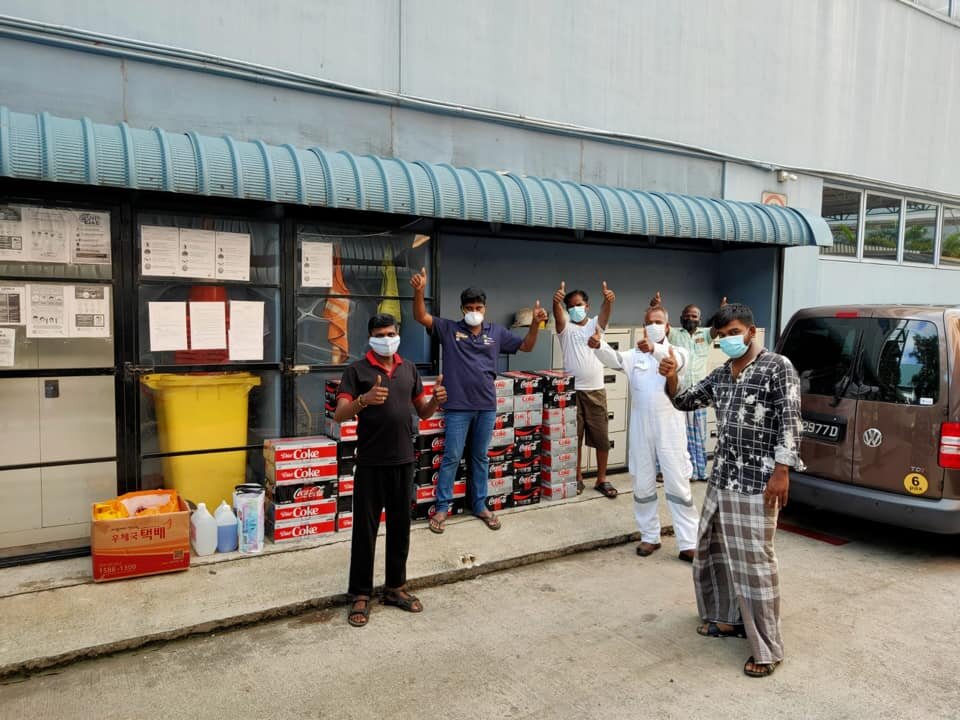Migrant workers have been hard hit by the pandemic. Even those living in dorms that aren’t under lockdown face stringent measures — their movements are often strictly controlled, and getting supplies can often prove to be a chore.
It’s why local charity Food Bank Singapore decided to help: by bringing the essentials to them, and making them available around the clock.
Last month, The Food Bank set up three vending machines in a dormitory in Punggol. These vending machines contain essentials like instant meals, hot beverages, as well as daily necessities like soap, toothpaste and washing powder — all available 24/7. They call it the Food Pantry 2.0.
Workers staying in the dormitory are each given a special Food Bank Card with a stored value of $50. All items are priced at $2, and are regularly restocked based on the residents’ needs.
It’s the second such venture that The Food Bank has launched — last October, they set up similar vending machines in Toa Payoh, distributing prepaid cards to needy residents in the area for them to purchase food and other essentials.
As Food Bank founder Nichol Ng explains, they decided to set up these dormitory-based vending machines after realising that workers needed more than just ad hoc deliveries.
“Doing the circuit breaker, we worked closely with different dormitories to provide them with cooked meals and dry rations,” says Ng. “From these initiatives, we saw the need for food and supplies to be readily available in these dormitories — so we realised that using the vending machines to meet these demands was perfect.”
Their good work hasn’t gone unnoticed. UBS and its social impact arm, UBS Optimus Foundation, have since donated S$650,000 to The Food Bank to help them roll out more of these vending machines across the island.
Ng strongly believes that charitable efforts shouldn’t end when the pandemic tapers off, which is why she plans to keep the machines stationed permanently at the dormitories. She says that the Food Bank is also in talks with “various agencies” to introduce more of these vending machines, and has plans to place up to 25 more of them in dormitories and low-income neighbourhoods around the island.
“Anyone can suffer from hunger or food deprivation, even in Singapore,” says Ng. “The caring shouldn’t end when Covid-19 ends.”
Visit The Food Bank Singapore’s website here to see how you can help.


